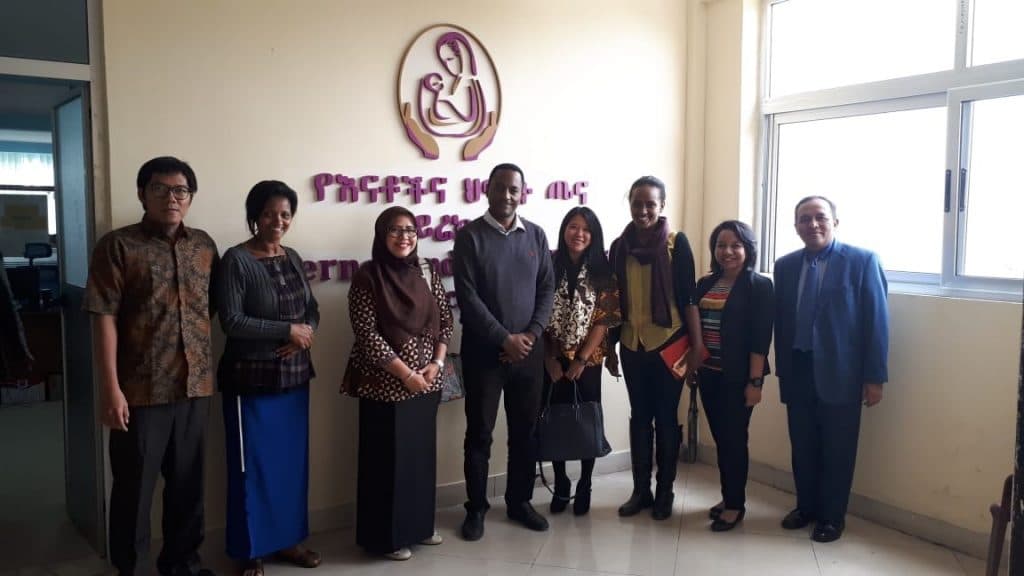 Two Senior Officials from BKKBN along with 1 Senior Official from State Secretariat and 1 Official from Ministry of Foreign Affairs has a discussion with stakeholder in Addis Ababa, Ethiopia on 19-24 June 2018. This meeting is to identify and examine the impact of the training in terms of strengthening BKKBN role as implementing agency as well as its benefits and advantages for the beneficiary country.
Two Senior Officials from BKKBN along with 1 Senior Official from State Secretariat and 1 Official from Ministry of Foreign Affairs has a discussion with stakeholder in Addis Ababa, Ethiopia on 19-24 June 2018. This meeting is to identify and examine the impact of the training in terms of strengthening BKKBN role as implementing agency as well as its benefits and advantages for the beneficiary country.
This team has facilitated by the embassy of the Republic of Indonesia in Addis Ababa to have discussion with several stakeholder regarding implementation of the action plan of Muslim Religious Training. Several stakeholders are, 1) Deputy of Resident Representative for UNFPA Ethiopia, 2) Former participants of the program “Training on Strategic Partnership with Muslim Religious Leaders in Family Planning”: (Mr. Gamachis Galalcha Shogo, Programme Analyst UNFPA Ethiopia, Ms. Mebrat Galalcha, Regional Programme Officer UNFPA Ethiopia, Mr. Efrem Regassa, Oromia Region Reproductive Health Officer) 3) Indonesia Ambassador for Ethiopia, 4) Pathfinder International, INGO works for FPRH and two training alumni (Mr. Sheikh Ezedin Abdulaziz Mohammedzein, religious leaders, Mr. Metiku Woldegirogis, religious leaders) 5) Ministry of Health of Ethiopia.
Some notes are taken during discussion such as; In general, all FPRH stakeholders in Ethiopia recognized and appreciated the Indonesia SSTC program for Ethiopians. The program has been beneficial for the Government and other stakeholders in establishing policies related to FP and RH. Considering there is cultural differences between the countries, more communication and coordination is needed to map the FPRH situation in Ethiopia, so better policies and programmes could be established.
Some recommendations are to send the Indonesian expert (Islamic Scholars) to Ethiopia so the expert could engage more with the MRLs and give the better material and understanding to the MRLs about the importance of FPRH in Islam. There is other recommendation to have more cooperation on education, especially about sexual education in school, which could be used to change the mind set of Ethiopians.
In the future, the frequency of the training and number of Ethiopian participants could be more increased. Another recommendation that the training is held not only for MRLs, but also for Ethiopian government officials because the government could support the MRLs role at higher policy level.

